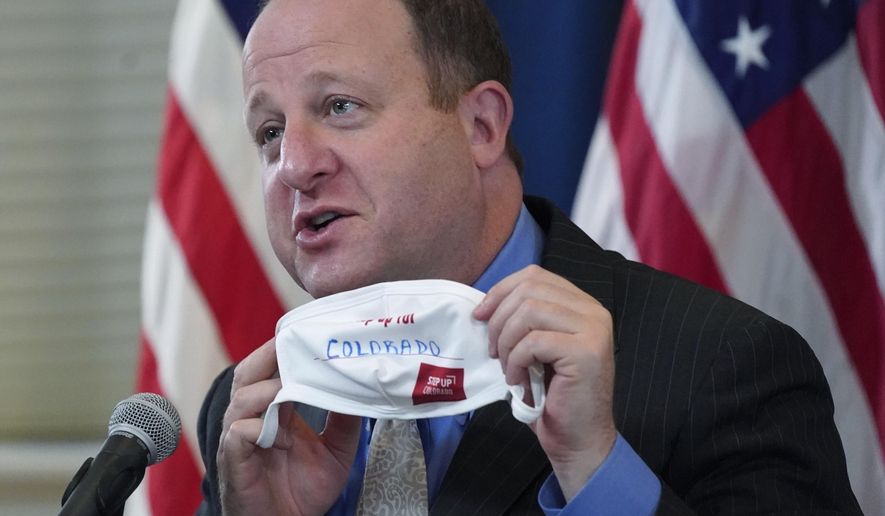DENVER (AP) - Citing “horrific” cuts Colorado lawmakers had to make this year in response to revenue lost to the coronavirus, Gov. Jared Polis told a key committee Thursday his $35 billion budget request for the next fiscal year aims to ease suffering this winter and position the state for a long-term post-pandemic recovery.
Polis told the powerful Joint Budget Committee his proposal is a blueprint for a sustained recovery in the years ahead - one he acknowledged is fraught with uncertainty as the pandemic rages and predictions about residents’ needs and state revenue are exceptionally volatile.
Adding to that uncertainty is when and how much Congress will deliver in its next stimulus package. Lauren Larson, director of the governor’s Office of State Planning and Budgeting, said Colorado can expect to receive just a fraction of the $24 billion in federal stimulus and relief funding it received this year during the pandemic.
As elected officials, Polis said, “It’s easy to lead on cruise mode in good times. This is no longer cruise mode.” But he said his proposal would help lawmakers avoid “the really horrific cuts you made” when they axed $3 billion from this year’s general fund.
Thursday’s hearing launched a budget process for the fiscal year that starts next July 1 well ahead of the next legislative session that convenes Jan. 13. The bipartisan budget committee is charged with crafting a balanced state budget, and the governor’s office plans to submit an amended budget proposal to the panel in January.
Polis has long made education his top priority. To that end, his proposal makes up for drastic cuts by seeking $621 million in K-12 funding and $852 million in higher education funding. Tuition increases for state-run colleges and universities would be capped at 3%.
For residents and businesses hurt by the pandemic, Polis also is seeking:
-A $200 million state stimulus to get jobless residents back to work and help struggling businesses;
-$105 million in tax relief and direct aid for small businesses, many of them restaurants and bars, that cannot continue to rely on outdoor service and face new capacity restrictions indoors;
-$50 million to prevent evictions of those who lost jobs or whose income went down;
-$50 million for child care;
-$220 million for infrastructure construction;
-$160 million in rural broadband investment to support education and telehealth services.
-$100 million dedicated to Colorado’s drug abuse epidemic. Opioid overdoses so far this year have surpassed those in all of 2019.
-A resumption of $225 million in payments to the state employee pension fund.
An additional $200 million in the proposal is set aside for personal protective equipment, testing and contact tracing for the coronavirus, which has claimed more than 2,200 lives and infected more than 138,000 Colorado residents.
Polis’ proposal restores the general fund - the discretionary spending portion of the state budget - to $13.6 billion. It also increases depleted state reserves to 10% of that total, or $1.3 billion, to prepare for the long-term effects of the pandemic’s economic impact.
Larson suggested that fiscal measures passed by voters this month would generate a net $105 million for fiscal year 2021-22. Those measures include a reduction in state income taxes, a first-time tax on vaping products and higher taxes on cigarettes and other tobacco products.




Please read our comment policy before commenting.